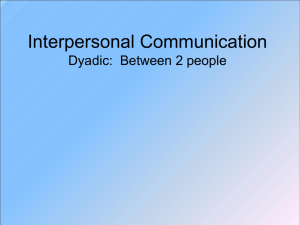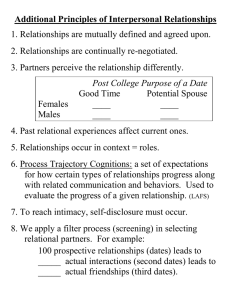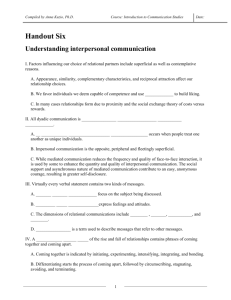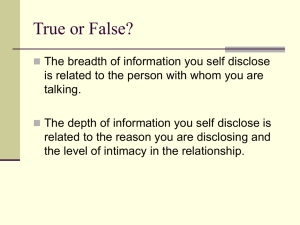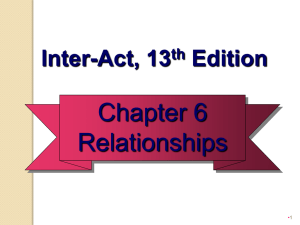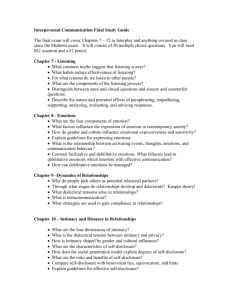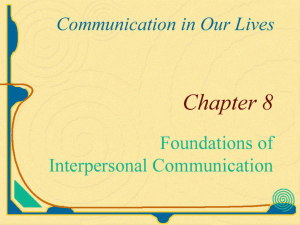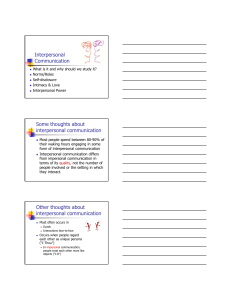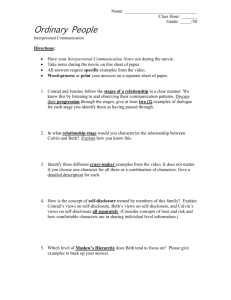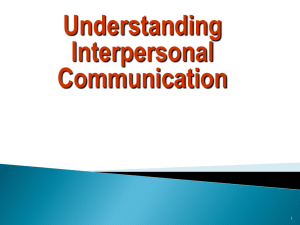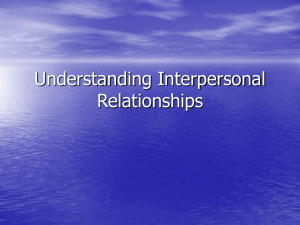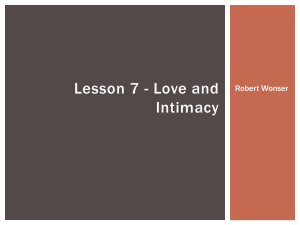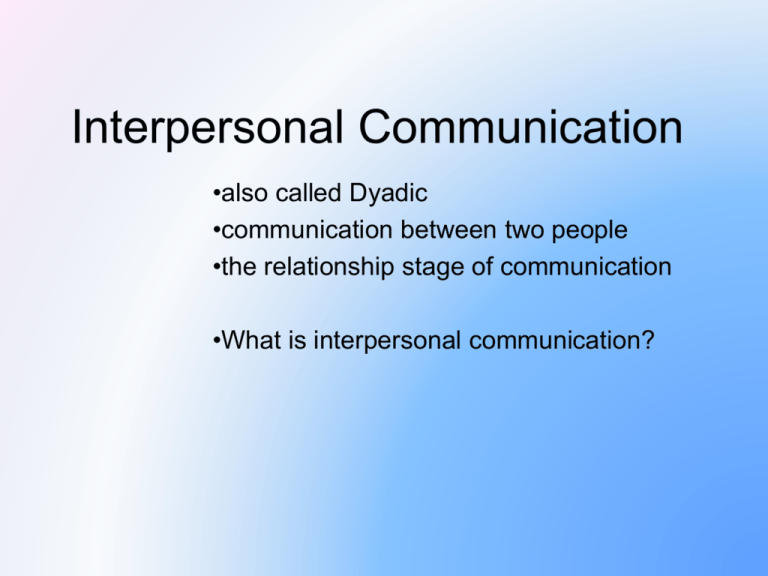
Interpersonal Communication
•also called Dyadic
•communication between two people
•the relationship stage of communication
•What is interpersonal communication?
CHARACTERISTICS
• Discussions
about
communication
• Content Dimension
• Relational Dimension
Metacommunication Messages
• Context:
Quality
Channel
quantity
• Quality:
• Impersonal or
interpersonal
• Face to Face
• Mediated
Types of Interpersonal Relationship
Acquaintances
Romantic Relationships
Work Relationships
Family Relationships
Friendships
WHY DO WE BUILD RELATIONSHIPS
WITH ONE PERSON OVER ANOTHER?
•Proximity
•Similarity
•Complementary = opposites attract
•Social Exchange (rewards-costs=outcome)
•Appearance
•Competence
•Prefer talented but flawed
•Exception: Hi or low self-esteem person wants perfect person
•Reciprocal attraction
•Other person likes you
How Do Relationships Develop?
Theories of Relational
Development
_Knapps’s Developmental Model
Maintenance
Bonding
Integrating
Differentiating
Circumscribing
Intensifying
Experimenting
Stagnating
Forward or Backward
Avoiding
Terminating
Initiating
Quickly or Slowly
Coming Together
May Stabilize
Coming Apart
Dialectical Model
– Competing goals (dialectical tensions)
• Connection vs Autonomy
• Openness
vs
• Predictability vs
Privacy
Novelty
How do we build better and
deeper relationships?
Intimacy
Self-Disclosure
Intimacy
Physical
• touching, hugging, holding hands
Intellectual
• Discussing issues of shared inerests and importance
Emotional
• Sharing feelings
Shared Activities
• Doing things together
GENDER AND INTIMACY
Gender Impacts Intimacy Styles
Females
Males
Self-disclose
Reveal feelings
Share (-) and (+)
Do things together
Do things for you
to show caring
Sex is a way to
express intimacy
Sex is a way to
create (build)
intimacy
Culture Impacts Intimacy Styles
Rebekah Nathan
My Freshmen Year
Collectivistic Cultures
Individualistic Cultures
•Japan
•More in-group vs outsiders
•USA
•Cocktail Party
Conversationalists
Self-Disclosure:
deliberately revealing personal and
significant information about oneself that
would otherwise be unknown
Social Penetration Model
and Self-Disclosure
– Breadth: # of topics
discussed
– Depth: shift from nonrevealing messages to
personal messages
– The greater the depth
and breadth the more
intimate the relationship.
Johari’s Window
Model of Self-disclosure
• Comprised of four quadrants: Open,
Blind, Hidden and Unknown.
• Quadrants become smaller or larger
based on the amount of communication
and self-disclosure in a relationship.
• Generally the larger the open area, the
more intimate the relationship.
What is appropriate self-disclosure?
– Is the other person important to you?
– Is the amount and type of disclosure
appropriate?
– Is the disclosure relevant?
– Is the disclosure reciprocated?
– Will it be constructive?
Is the risk of disclosing reasonable?
Trust
What is trust?
What causes you to lose trust in someone?
-To believe that someone is honest and means no harm
The Free Dictionary
What can you do if you don’t
want to self-disclose?
•Equivocate
•Hint (face-saving)
•Lie
Lying
• Dating couples lie in about 1/3 of relationships
• College students tell their mothers lies in 50% of
conversations.
• Average = 3 lies for every 10 minutes of
conversation
• Many lies are altruistic lies or “white lies”

